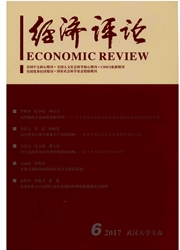

 中文摘要:
中文摘要:
本文以我国各直辖市及省会城市的污染气体排放为例,从环境质量的视角对“逃离北上广”问题进行分析。以2004—2012年期间数据为样本实证分析污染排放对各城市劳动人口流动所造成的影响,并在此基础上进一步将城市居民的收入水平以及城市经济的产业结构等因素作为门槛变量估计上述效应。实证结果表明:污染排放的确会在一定程度上造成人口流失,但这种驱赶效应主要体现在我国经济较发达的沿海及内地中心城市,且随着收入水平的增长,环境质量对于人们的迁移决策造成的影响程度会逐步提升。此外,生活在工业化为导向的城市以及生活在服务业高度发达的城市居民对于环境问题较为敏感,只有第二产业与第三产业之间保持相对均衡而健康的比重时,环境对人口造成的驱赶效应才有所缓解,据此本文提出了相关的政策建议。
 英文摘要:
英文摘要:
Based on the pollution emissions of the provincial capital city and municipalities directly under the central government in China, this article studies the" Fled North Canton" from a perspective of environmental quality. We empirically analyze the impact of pollution emissions on labor mobility by using the data from 2004-2012. Furthermore, this article also controls the income level of urban residents and the industrial structure of urban economy as threshold variables to estimate the effect. The results show that the pollution emissions cause a certain loss of labor supplying. However, the main effect is manifested in the more developed areas which has better economics structure in China. And, we also find that as income level of urban residents continues to increase, the influence of environmental quality on labor mobility becomes stronger. In addition, residents who live in a city which relies on second industry or has a highly developed service industry are more sensitive on environmental quality. The impact of environment on labor mobility could relieve only when a balanced relationship between secondary and tertiary industry is established.
 同期刊论文项目
同期刊论文项目
 同项目期刊论文
同项目期刊论文
 期刊信息
期刊信息
